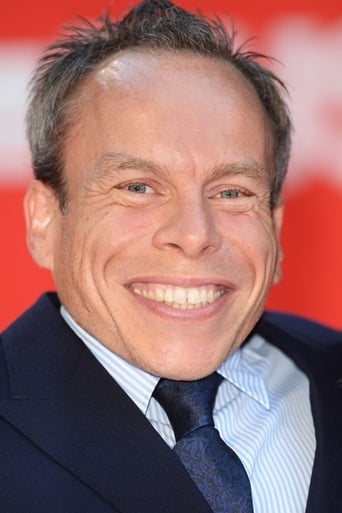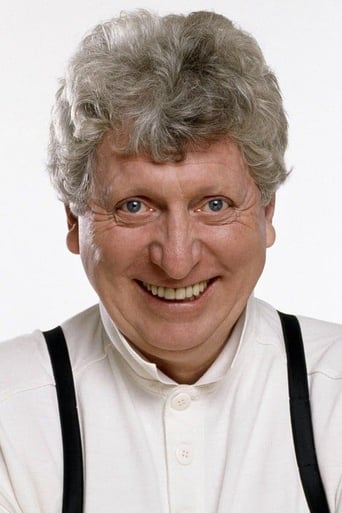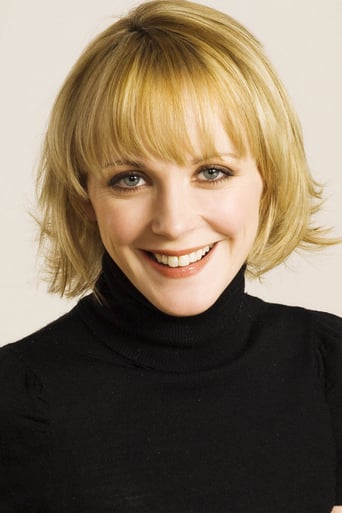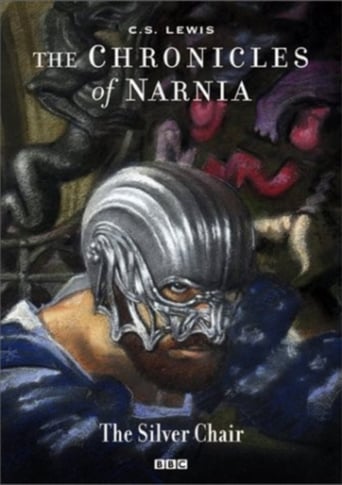
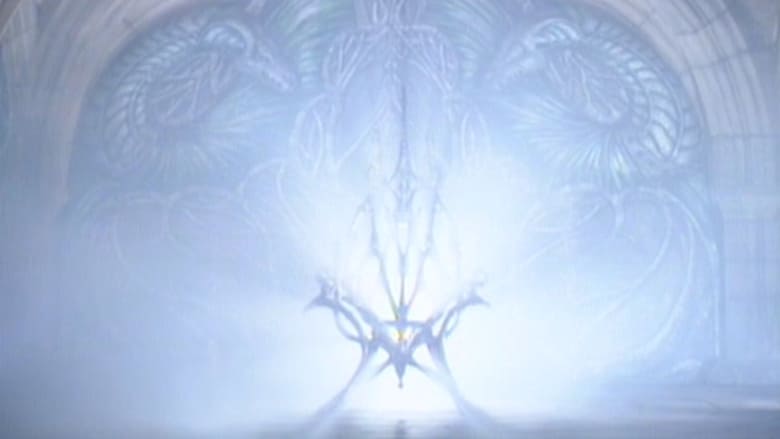
The Silver Chair (1990)
Eustace, along with a new companion named Jill Pole, is brought back to Narnia. The pair are told by Aslan they must search for King Caspian's missing son, Prince Rillian.
Watch Trailer
Cast
Reviews
Very very predictable, including the post credit scene !!!
Memorable, crazy movie
Although I seem to have had higher expectations than I thought, the movie is super entertaining.
It is a whirlwind of delight --- attractive actors, stunning couture, spectacular sets and outrageous parties. It's a feast for the eyes. But what really makes this dramedy work is the acting.
The Silver Chair is one of my favorite stories of the Narnia series. The messages are powerful, the adventures are intense, and the ending bitter-sweet (and desirable). Mostly it's about Jill and Eustace being called out of their world, and with the help of a marshwiggle called Puddleglum, they go to find a lost Narnian prince who is being held captive by the Lady of the Green Kirtle (also known as the Queen of the Underland). Along the way they encounter giants, unfriendly weathers, and underground creatures. The plot sounds great, but the movie couldn't quite live up to the intenseness of the story. I don't blame the directors or writers, especially since there was not much CGI back then, so everyone had to dress in animal costumes, use a robotic lion for Aslan, and the special effects for the giants vs the main characters was not the best. The robotic Aslan looked very very awkward. Whenever it talked its jaw would drop at the wrong times, it barely ever sat or lay down, and the character (compared to the first movie) always seemed angry. Sure he's considered to not be a tame lion, but he wasn't always angry, but neither was he always pleased with everything. Maybe I'm just being picky, but I feel more of his anger than kindness or compassion.The only other thing that bothers me is the cheesy acting. I would have to say that Puddleglum and Prince Rillian are the only characters I enjoy who aren't over acting, but the rest of the actors make no sense in their acting. Take for example at the beginning when the bullies are "picking' on Jill, all they're doing is cornering her and yelling her last name, "Pole! Pole! Pole!" What are they making fun of? Are they making fun of her name being the same as a telephone pole? And when they're chasing her, what's the purpose? Do they just want to continue shouting Pole at her? That's one of many parts that always confused me. But the only overacting to rival all of them is the Lady of the Green Kirtle herself. It's Barbara Kellerman; and we've already seen her as the overacting White Witch and the Hag from the previous films, so she's pretty much not playing a different role. I would have liked it better if the directors got someone else for the part, but I guess there was a low budget, so I'll let that pass. However, what I won't let pass is that she's way over the top in her acting and being over dramatic. It almost felt as if she thought that the only way anybody would get the idea of how evil her character was, was for her to go over the top in her monologues, screaming, run around a lot, and change her voice around from deep and angry to sweet and soft. True that's what she does in the book, but she had a way of containing her wrath by being calm and cool until she couldn't at the very end. In the movie she goes in and out of frustration and sweetness making me confused.I occasionally watch it, but I still think that it's a bit cheesy and could have been better improved (at least in the acting if not in the special effects).
This collection gives us the complete set of the BCC adaptations of the Narnia novels by C.S. Lewis in three miniseries of six episodes each, plus some extras. The first is "The Lion, the Witch and the Wardrobe" (1988) about the city Wardrobe in the country Spare Room. The second (1989) brings together "Prince Caspian" (two episodes) and "The Voyage of the Dawn Treader" (four episodes). The third concerns "The Silver Chair" (1990).The first adaptation sets the tone and the main characters. The tone is that of the novel and it is done for children. It sounds slightly naïve at times because the storyteller is no longer constantly present and is not C.S. Lewis at all when there is a voice over. The regular "we" or "this world" or even the "lions of Trafalgar Square", meaning the real world, addressing the children's audience from an external adult point of view, reminding us of the fact that this is all a story, disappear and I think it is a loss.The second adaptation makes two full novels into one story with a shift from the first one to the second that is at least abrupt and the packing up of the two in six episodes makes psychological details and descriptive details scanty. The story becomes a story line more than a fully developed story. The dragon though is a good nice creation, and that was necessary since it was an essential element and it had to fly properly, which is not the case with other flying animals, particularly Aslan. They are mostly simple and stiff. It keeps the story of the Dawn Treader the way it is in the novel and the end is the real end including the final pilgrimage of the mouse Reepicheep and the return of the children. It is a lot more respectful of the spirit of the story than the ending of the recent long feature that can be seen in cinemas.The last adaptation gives details and the witch is a marvel though her becoming a serpent and being killed is less impressive since no green blood is shed and only Prince Rilian takes part in that execution. Eustace and Puddleglum taking part is nice but in the novel. The escape from the underground city does not try to explain the even deeper world of fire and incandescence into which all the gnomic slaves of the witch jump back happily. I miss the big celebration outside the hole from which they extract themselves, with fauns, dryads, satyrs and dwarfs all dancing together. But well at least they keep the details of King Caspian X's death and his resurrection in Aslan's country though they soften the harsh commentary of C.S. Lewis on the English school system and the incompetence of school principals and inspectors, or MPs.But these adaptations are interesting nevertheless. They insist on the fact these stories are not heroic fantasy but only children's literature. That is important because then the values that are presented in the films are pedagogical and not only entertaining. It is also important because it avoids, like the books, any subject that is not childlike or child-friendly. No love is wasted on anyone and even friendship is rather kept lily pure. No kissing, please, we're British.Ut also defends the basic humanistic values of the books in fair contrast with the the world at the time or the literature of Lewis's time. A fair and clear condemnation of slavery and the exploitation of animals. But since the novel "The Boy and His Horse" is not there the rejection of political totalitarianism is absent. The allusion to the usurping uncle in Prince Caspian is by far not enough. Lewis's books are deeply committed to a democratic system. The films are far from being as clear as that. Calormenes are absent for example.The films are also a lot less clear than the books that only people having some human blood can rule Narnia, including the White Witch of the first film who is a descendant of Adam, mixed with other bloods, including jinn blood from the sexual partner Adam had to procreate that line of descent. The absence of "The Boy and His Horse" also deprives us of the description of the four initial human kings and queens of Narnia, including Queen Suzan who is definitely not served very fairly.But for me the main absence is in fact "The Last Battle" because it reveals two essential things in these seven novels: the idea that all worlds have a beginning and an end, including Narnia, that this end can only come from both inner strife, invasion and political manipulation of the masses that are shown as basically easy to manipulate into divisions or obeying absurd commands. The masses make history but only when some individuals and foreign forces join their efforts to conquer the minds and imagination of these masses.This last novel was Lewis's testament and he showed in it that he did not really believe in democracy, i.e. the power of the people, for the people and by the people, because he did not trust any politicians but preferred an aristocratic monarchy in which kings and queens are of a different sort from the people and the masses. The main difference between Calormenes and Narnians is that The Calormene "master" (who is a Calormene by genetic birth) governs Calormenes as slaves, with a very narrow aristocracy, and the Narnian "king (genetically different from all Narnians by at least some human genes) grants them freedom and diversity.To avoid in anyway the bleak atmosphere of "The Lord of the Rings" or "The Time Machine" they produced a brave new world that lacked most of its pith and marrow. The series are interesting but only as entertainment for children and they lose the pedagogical dimension the books constantly keep.Dr Jacques COULARDEAU
Mty son (7 years old) lovs this one and all of the series. I like this one in particular, largely because of Tom Baker's brilliance.I just have a question for anyone who has watched it.Did anyove notice that Puddleglum says the magic word (ie f*ck)?In the scene where he gets drunk and he is picked up by the fat lady giant, Puddleglum makes some incomprehensible protests. Among this, pretty clearly, he says the magic word. My 7 year old first noticed this and told me. I told him he must be wrong. But I watched/lisstened to the offending bit and I had to tell my son that he was right. It was one of the funniest things i've ever seen / heard.Anyway, Tom Baker is brilliant as always and he can do no wrong in my eyes.
I agree that this last in the series was an improvement over the others, though still a bit slow moving. I bought the DVD mainly because it had Tom Baker in it. He seems a bit uncomfortable in the role at first, but gradually sinks into it. The trouble is that Baker's version of "the Doctor" in Doctor Who was so upbeat that when attempting to play the glum Puddleglum, I actually caught him suppressing the big toothy smile that he is famous for. His frog-like frown worked very well, though it took him a while to integrate the glumness naturally into his speaking performance. There are actually two others that I think could play that role quite nicely. One is Ozzy Osbourne. The other is Joey Ramone of the Ramones(though he passed away a while back).I would also like to comment on one other note that others have ignored so far. While C.S. Lewis intended the books to have a Christian message, he at least had the decency to be subtler in execution so that more general audiences could enjoy the books. The BCC films, on the other hand are as subtle as a New Testament smacked across your forehead.Just out of curiosity I checked the original ending of Silver Chair against the film, and I was correct in my guess that the screenwriter had changed it. The book does NOT include Aslan's ending line from the film where he says that he also exists in the human world, but that the kids MUST learn his "other name."There wasn't a moment in the series where the screenwriter didn't go out of his way to remind adult viewers that this is about Jesus, and not magic as would be the case with a movie like Harry Potter or Willie Wonka and the Chocolate Factory. The nice thing about Lord of the Rings is that I could just sit back and enjoy it as a story without feeling preached at. Sometimes the Narnia books did that, but the BBC films boiled too much of it down to the preaching.
